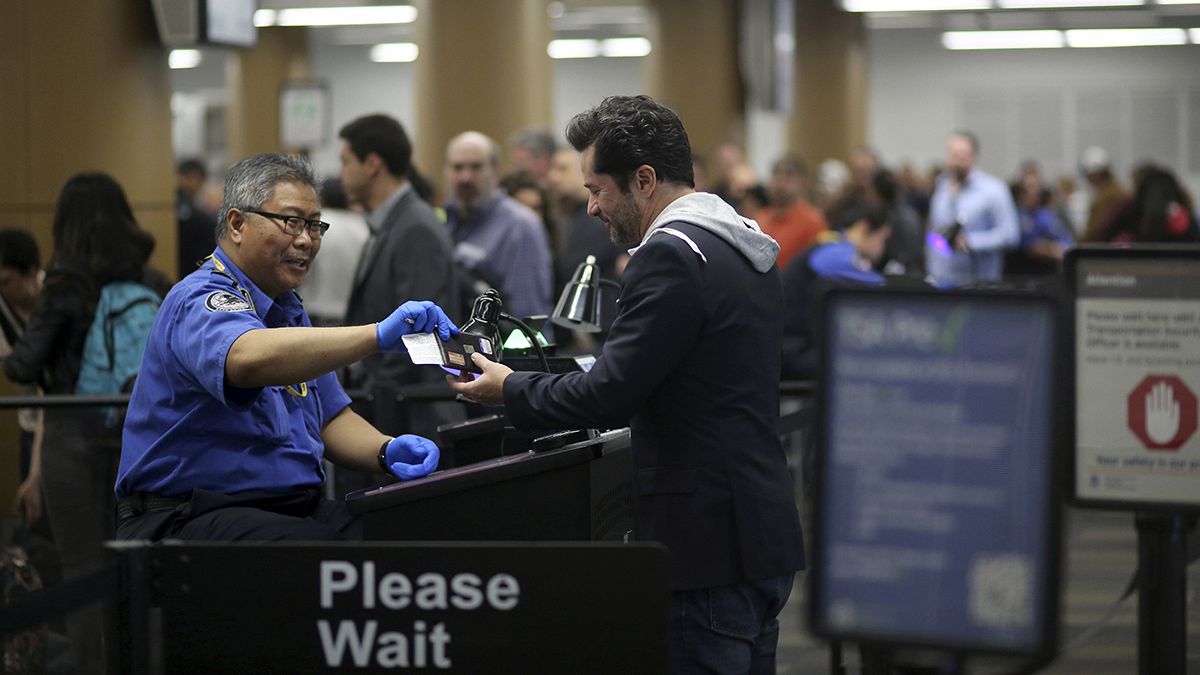Since 9/11, Europe’s security services have said that the threat of terror attacks has been acute. That fear has now been heightened after the deadly
Since 9/11, Europe’s security services have said that the threat of terror attacks has been acute.
That fear has now been heightened after the deadly events in Paris last week.
So what more can the European Union in the fight against terrorism?
EU officials have a number of tools in their kit to cooperate across borders.
Experts, databases, crime fighting bodes and financial resources.
Europe’s Schengen brings together 22 countries of the European Union plus four more:
Iceland, Liechtenstein, Norway and Switzerland .
It means passport free travel with any checks between those countries, except in specific cases where there is a threat to public order or security.
Now Brussels want to fast-track the pooling of air travel data, known as passenger name records.
ll was rejected by MEPs voted it down in 2011.
Civil liberties campaigners say it is too draconian as millions of EU citizens can have their data stored for years.
Audrey Tilve, euronews: Arnaud Danjean, you are a centre-right MEP and you were the long-serving head of the European Parliament’s security and defence subcommittee.
We hear a lot about a passenger data register collating information about air passengers.
This bill has blocked in the parliament for three years. If this database had existed, would it really have helped stop French militants attacking their own country.
Arnaud Danjean, French centre-right MEP: “We heard one travelled to Yemen, which we know is a very dangerous country. This trip leave a trace; the ticket reservations leave a trace. And the data could be put together to track their movements, establish the identity of suspicious people, so we can’t rule out that it would have been useful.
“The register won’t be a silver bullet, it won’t fix everything like a magic wand. But it’s one of those rare tools which we could have at our disposal to collect vital information on potentially dangerous people.”
euronews: “Certain governments and politicians have put in doubt whether free movement can go on. Is it well founded? Are there some rules that we need to change. “
Arnaud Danjean: “The Schengen zone can be adapted. In certain conditions, you can set up border controls and check databases run by different police forces. Schengen has some flaws, it could be improved. Notably, external border checks could be coordinated, including those leaving the Schengen area.
We could ask a certain number of countries today to improve their checks on the movements of dangerous people, notably between Turkey and the European Union as that is how most of the jihadists enter Syria and Iraq, by crossing Turkey’s borders. Checks need to be improved.This changes can be made without having to totally scrap the Schengen system.
euronews: “Do European countries set the right example through their use of the Schengen information system. It’s the system which stores reports. It appears to be underused, Commission officials say.
Arnaud Danjean: “Yes, it’s true. That’s one of the gaps indeed. We have tools at our disposal which aren’t fully used to their full potential. Schengen is something more complex than just being allowed to travel without being checked.
“So I support this system being used to its maximum potential and to do that before thinking about new instruments which could come into being without necessarily brining about more efficiency and more fluidity in terms of co-operation, which is already quite intensive between European authorities.
euronews: “But in the end, it is up to the member states to show willingness to cooperation, and whatever they say, they are reluctant to share sensitive information, especially amongst 28 countries. Hasn’t this cooperation reached it limits?
Arnaud Danjean: “To put senstive information out at the EU level would mean you immediately lose the quality of that information in relation to its sources, the intellgience gathering process. So you can’t do it all at 28.
euronews: “You can’t share sensitive information at EU level. That’s what you’re saying?
Arnaud Danjean: “You can share some things, but not the most sensitive operational information.It is wrong to believe that it’s more efficient to do things together at 28 in Brussels. It creates the risk of rigid bureaucracy which will damage operations on the ground. We should be careful about simple ideas and solutions to create extra bodies and encourage member states to share. they already do that. I believe more in harmonising anti-terror legislation across Europe. Now we have 28 countries with different anti-terror laws. That hinders the work of prosecutors and police. I think that we should on a harmonised legal framework. That would be a real step forward.


